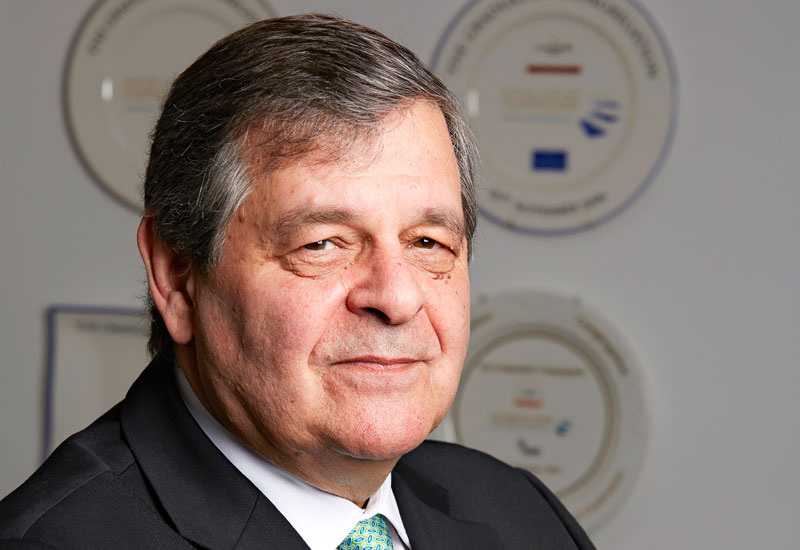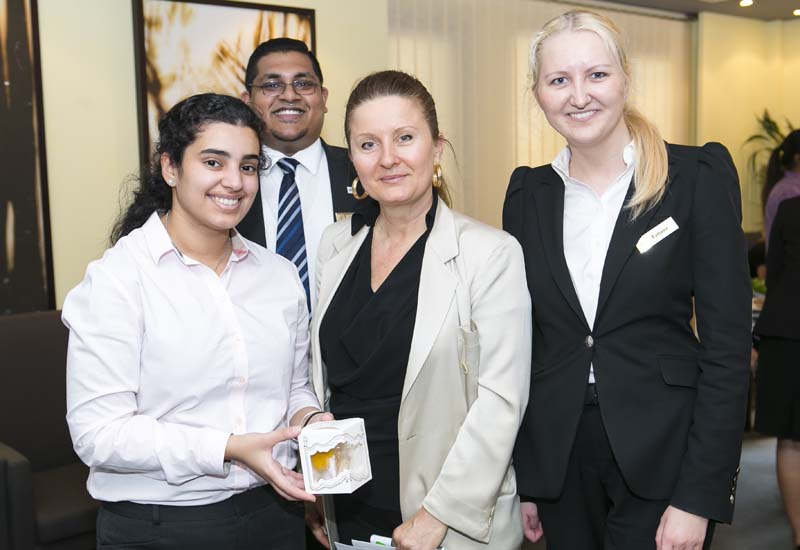Currently, The Academy has 333 students across its degree programmes, and Hilvert is confident that number will rise to 400 in the next few years. The nationality mix is varied, reflective of the multi-cultural atmosphere of its resident city, and was a conscious decision taken by the founding members of the college.
Hilvert continues: “Looking back, another achievement was that we made the decision that unless we become international we cannot succeed here. We were the first UAE university that went around the world promoting ourselves. We were creative; we went to Scandinavia and got accredited by the government there which meant that we could take students from Norway and Sweden; we went to trade shows in Germany and got lots of German students. All through these years, we have always taken a lead in looking at markets all over the world.”
While developing its reputation internationally, the school also grew its local market. Currently, 10% of EAHM’s students are Emiratis. Hilvert says: “From the very beginning I always knew that we had a responsibility here to develop Emiratis. Because the industry is small, I didn’t know how that would go. I’m proud that we’re getting to those objectives. The quality of our Emirati students who are graduating has grown and grown and grown, and is getting stronger.”

| Advertisement |
“It’s a very healthy mix and you have to carry on doing that because history has shown in the bad economic times that when Europe falls, which it did, we will lose Europeans but we will get Chinese. The key thing is never to allow one nationality to dominate the college. The highest percentage is about 13% at the moment,” explains Hilvert.
And to market itself around the world, Hilvert makes no apologies for the price tag associated with becoming a student at The Academy. To join as an MBA student, for example, will set prospective graduates back around US $ 27,250 (AED 100,000). Hilvert says confidently: “We don’t make an excuse, we don’t have a problem telling everybody that we’re the most expensive college in the country because we believe we should be, but you have to be confident about your product.”
One of the most common questions the Academy faces is parents asking why send their children to a college in Dubai over Switzerland, Holland or the US.
“Our answer always is: the quality is no better than here. But look at Dubai, if your child wants to study hospitality and tourism, look what’s outside the door here. The most advanced hospitality and tourism industry in the world, the most successful airline in the world. Here, the industry is growing and all the young students get a chance to go into internships, to graduate into these companies.”
While EAHM was continuing its stellar growth, Hilvert says the team did not expect the financial challenges of 2008. “We may not have progressed a lot in those days but we did not go backwards,” he says philosophically.
He reflects further on the confident buy-in of the regional industry, the presidents and CEOs of which sit on the industry advisory board. There were some disappointments for Hilvert, but he deals with that with equanimity. He says: “When I look back now and see the fantastic industry advisory board I have — presidents of nearly all of these companies — it is no surprise. When you list the most successful companies in the world, they’re the ones who bought into the Academy. The companies that believe in developing and educating and training young people are the companies that lead.
“Overall our relationship with the industry has been fantastic. It has all gone to plan —maybe I would have liked to be at this point three or four years earlier but I think that’s because of what happened several years ago when one had to steady the ship.”
And now it’s time for Hilvert to move on. While a successor has not been announced, Hilvert is confident the foundations are truly laid, which will make his/her job easier. What advice or observations would Hilvert like to share with whoever steps into his big shoes? “When you have a college such as this, the first objective must be that you improve the academic reputation of the college every year,” he says.










 Search our database of more than 2,700 industry companies
Search our database of more than 2,700 industry companies










Jan 7, 2016 , United Kingdom
Congratulations and well done Ron. I wish you the very best for the future. Thank you for leaving such a legacy.